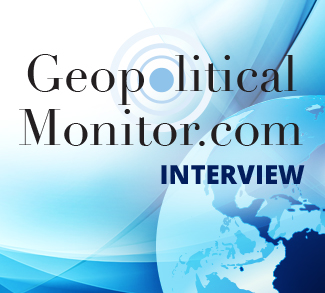Mexican President Andrés Manuel López Obrador (AMLO) is a classic populist—you are either with him or against him. The validity of this assertion bears important ramifications for Mexico’s political economy, foreign direct investment, and the country’s diplomatic ties with the United States. Although the Constitution limits López Obrador to one presidential term, his leadership and delivery on commitments will influence his political party’s longevity and success in future elections with wide economic and social impacts at state and municipal levels. His populist strategy opposes economic elites but also implicates foreign investors for their affiliations with these elites and perceptions that their capitalist enterprises contribute to widening inequality. With drastic populist reformations, foreign investors may feel trepidation about ventures in Mexico. Similarly, populism may threaten Mexico’s diplomacy with the United States by weakening bilateralism in hemispheric issues and drawing criticism for democratic backsliding.
As a charismatic leader—one prerequisite for the rise of populism—AMLO’s rhetoric has played a crucial role in rallying the masses to oust elites in power. Public opinion reflects this polarizing effect, leading members of society to overwhelmingly either support or oppose him. His policies are leftist-populist, such as those redirecting funds from government salaries toward development initiatives, goals to reduce corruption, and social policies aimed at restoring power balances between elites and the poor. López Obrador’s rhetoric, public opinion, and policies reveal that he is, indeed, a classic populist, and that although he has negotiated with elites and made concessions to retain influence, dualism, rather than compromise, characterizes his philosophy.
López Obrador’s rhetoric is populist—idealistic and uncompromising. In terms of speeches (direct attribution), the Global Populism Database ranks López Obrador’s rhetoric as more populist in style and thematic content than several contemporary populists, including Brazilian President Jair Bolsonaro. In condemning elites for corruption and policies harming citizens, his words reflect dualism, common among populists leaving no room for compromise. He has differentiated business owners from elites by explaining that business owners deserve “recognition, love, and peace,” while the “power mafia” needs “the law” and to “stop stealing and thriving under the protection of public power.”
Another populist tactic is to make bold assertions to remedy enduring societal challenges through drastic reformation involving the haves and have nots. López Obrador’s pledge to do away with “privileged abuses” and lead Mexico through a “Fourth Transformation”—hearkening back to Mexico’s historical three of independence, formation of the republic, and revolution—is a quintessential example of populism’s antagonistic struggle to fix the perceived “broken system” and redistribute wealth and power between the economic elite and “the people.”
López Obrador’s rhetoric also comes through the party platform (indirect attribution) of his National Regeneration Movement (MORENA), which he founded in 2011 as an anti-corruption non-profit organization. After his narrow defeat as the Party of the Democratic Revolution (PRD) candidate in the 2012 presential election, he left the PRD because he felt “the leaders of that party betrayed the people” by accepting Peña Nieto as the victor and supporting his policies. López Obrador then registered and led MORENA as a political party in 2014, and won the 2018 presidential election under its banner. The party’s Declaration of Principles, a reflection of AMLO’s political philosophy, portrays the world through a Manichaean lens, in that societal issues have a moral dimension and are dualistic, with no room for compromise. It states that MORENA will “not accept a pact or agreement that […] makes it dependent on foreign entities or political parties,” reminiscent of former elites in power and their prioritization of foreign business connections over the Mexican people.
Polarized public opinion
Since López Obrador took office, neutrality regarding his performance has decreased. In one poll on López Obrador’s performance as president, 16 percent of poll participants either did not know or did not respond on 1 December 2018 (weeks after he took office), whereas these options categorized only two percent of participants in December 2020, with the rest either approving or disapproving. Similarly, more recent polling reflects entrenchment of opinions as approval and disapproval lines stabilize. Despite dwindling support, López Obrador remains confident that those backing him and his drastic reforms will outnumber the opposition. In a bold declaration, López Obrador stated he would resign at “the first protest of 100,000” and when he sees that he doesn’t have “support in the [opinion] polls.”
A key criticism of López Obrador has been his oft-perceived flippant attitude about COVID-19. His weak policies and their adverse results match conditions among other populists and their “medical populism,” rejecting expertise from scientists and researchers perceived to be part of the “elite.” As conditions worsened and scientific evidence became more abundant, dissatisfaction with López Obrador’s handling of the pandemic increased (from 17 percent in April 2020 to 37 percent in November 2020) and neutrality has decreased (from 10 percent to four percent over the same period), resulting in more critical and polarized public opinion.
With much criticism stemming from journalists, López Obrador has taken a hostile approach to the press, similar to other contemporary populists. Their heated exchanges on social media or during press briefings reflect sharply opposing viewpoints and López Obrador’s unwillingness to compromise. He once told journalists, “If you cross the line, you know what happens to you. It’s not me, it’s the people.” In April 2019, López Obrador cut the government’s media advertising budget in half as part of wide austerity measures to reduce federal spending, which some outlets interpreted to be an attempt to weaken the press.
Policies
AMLO’s battle against corruption and inequality has been a source of contention among his followers and political opponents. López Obrador’s “Franciscan poverty” policy, which involves austerity measures and reducing government salaries to combat corruption and poverty by “transfer[ring] funds to the people,” has attracted praise from the poor and resentment from elites. After taking office, he fulfilled campaign promises to reduce the salaries of government officials and control public-sector debt.
Despite his vilification of elites, López Obrador’s dualist stance has softened in some areas during his presidency. He has negotiated with business leaders, acknowledging their irreplaceable role in his quest for economic growth. In mid-2019, he planned to cancel contracts awarded to private companies to develop and maintain natural gas pipelines because he felt the deals swindled taxpayers and opposed his goal to strengthen state-owned energy enterprises. Business elites, however, convinced him to reverse course in August 2019 by citing likely consequences for foreign investment and trade with the United States.
Conclusion
López Obrador’s rhetoric, public opinion, and policies reveal that he is a classic populist, and that even though he has negotiated with elites, his actions reflect dualism rather than compromise. Despite some short-term gains, López Obrador will likely fall short on his pledge of a Fourth Transformation for Mexico, but this will not adjust the length of his tenure, nor is it likely that these shortcomings would alter 2021 midterms. Rather, disillusionment in failed economic policies and social reforms, along with a strengthened establishment offering more favorable government alternatives, will likely reduce the strength and momentum of his MORENA party in 2024 elections. It is likely that such a change would gradually change economic dynamics and Mexican policy in ways that will increase foreign direct investment and ventures in energy and other sectors.
Matthew A. Hughes is a recent graduate of Johns Hopkins University SAIS’s Master of International Public Policy program. The opinions expressed in this article are those of the author alone and do not reflect the official position of the U.S. Army, the Department of Defense, or the U.S. Government. Also, the appearance of hyperlinks does not constitute endorsement by the U.S. Army, the DoD, or the U.S. Government of the referenced sites or the information, products, or services contained therein.
The views expressed in this article are those of the authors alone and do not necessarily reflect those of Geopoliticalmonitor.com




